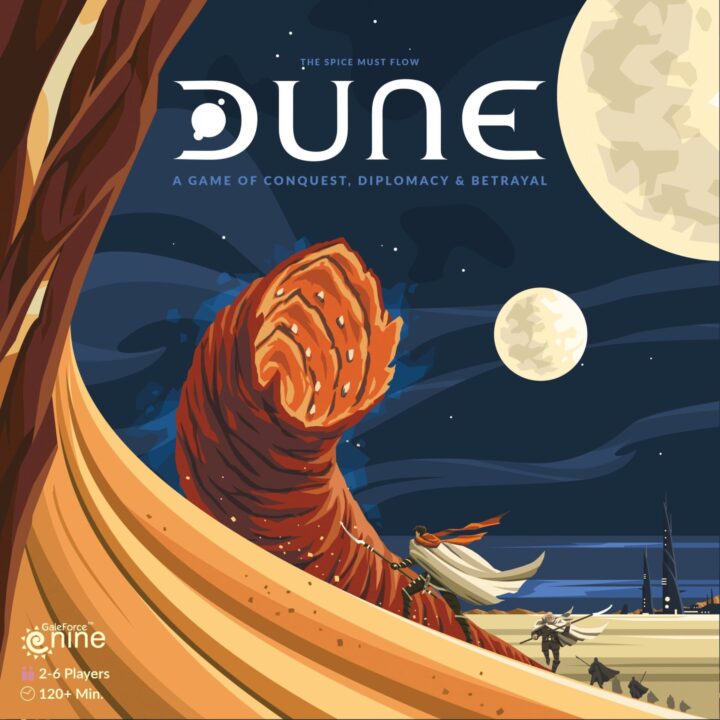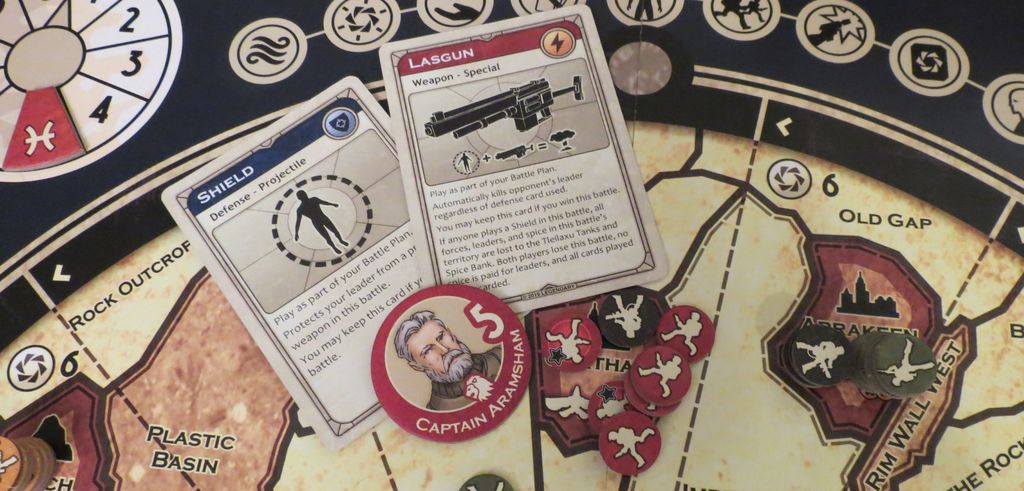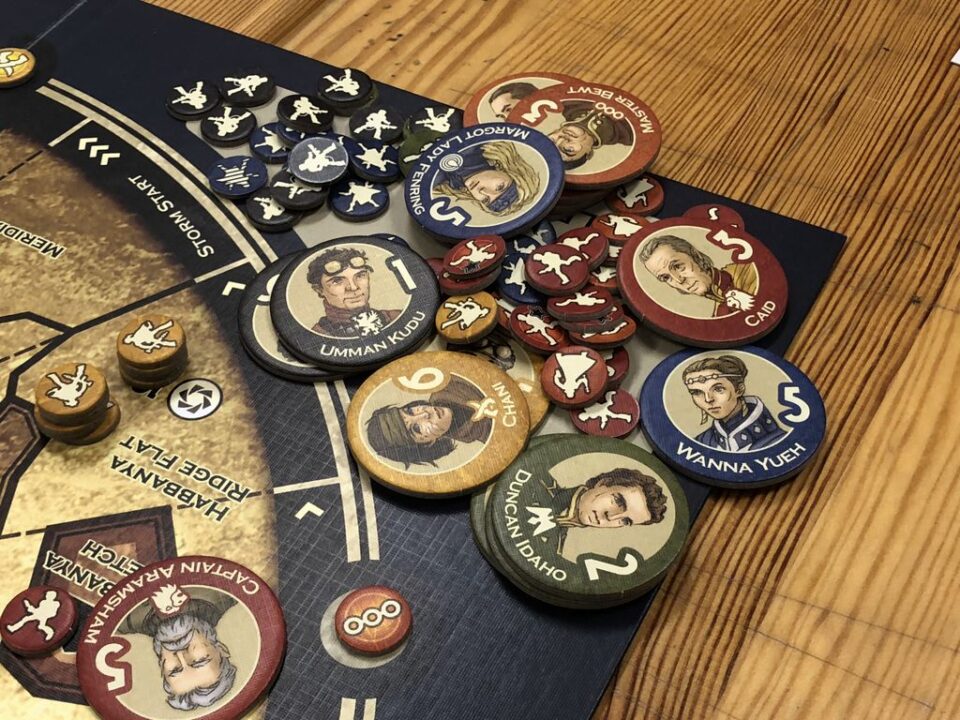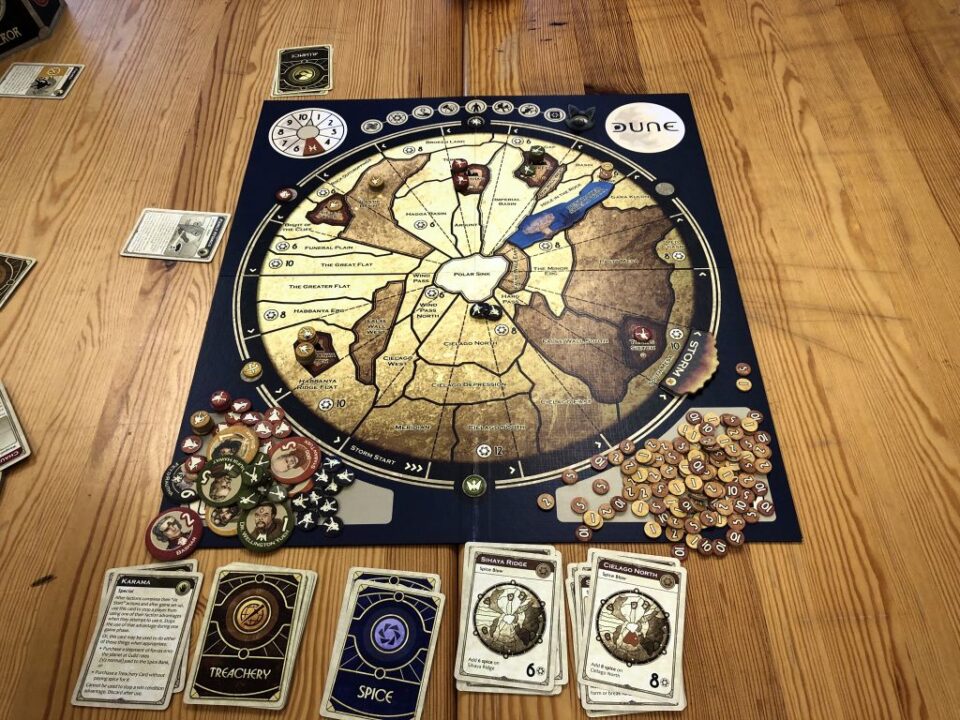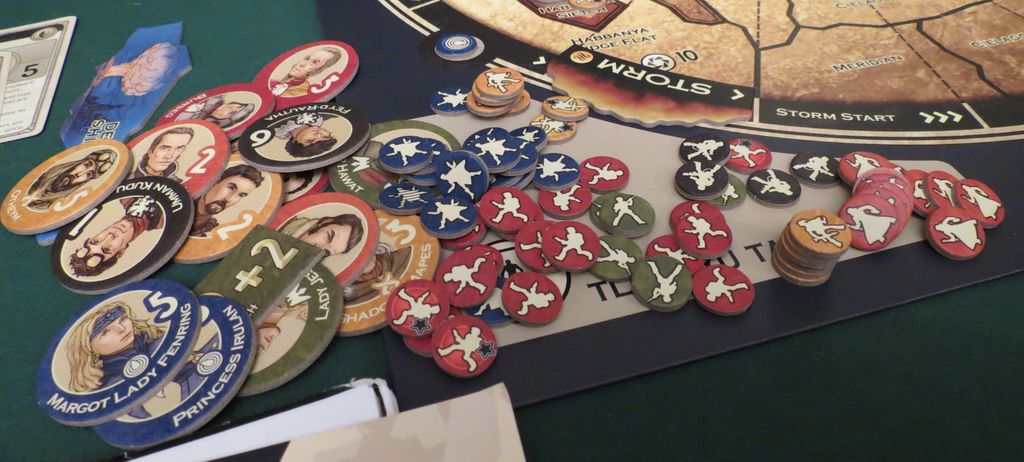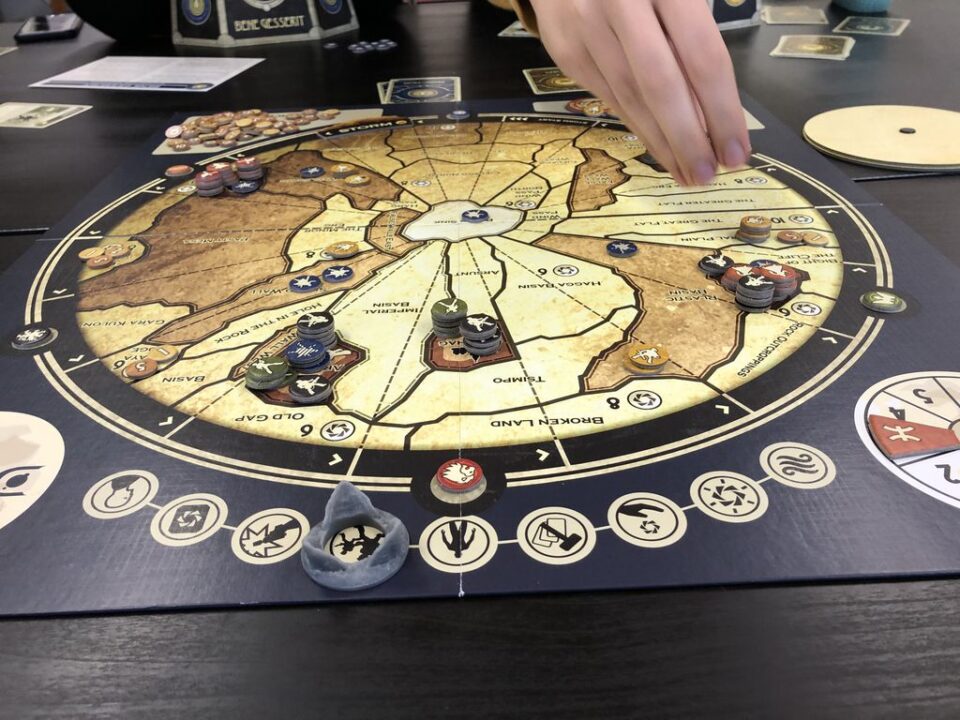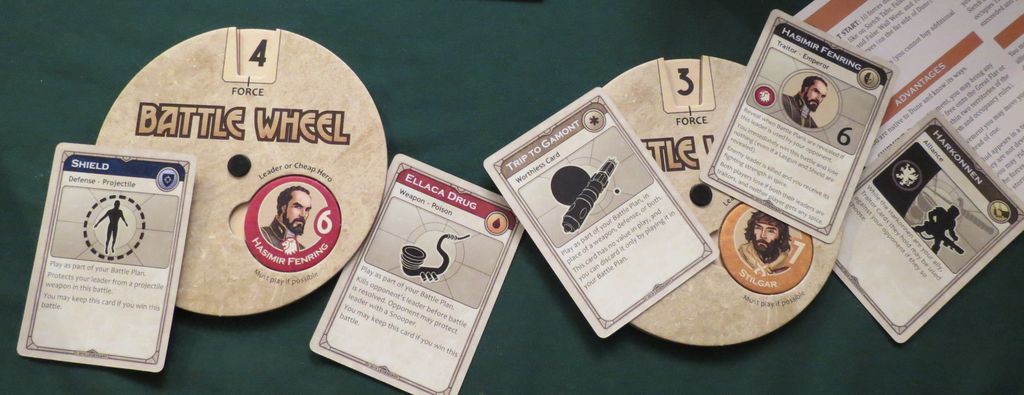Welcome to my review! If you’ve ever dreamed of backstabbing your friends, fighting for spicy sand, and arguing over who really controls the universe, you’re in for a treat. This isn’t your grandma’s board game (unless your grandma runs a spice cartel). I played this wild ride with my crew, and let me tell you, we’re still talking about what happened round five. So grab your sand-proof underpants, and let’s see if this classic game deserves precious space on your shelf.
How It Plays
Setting up
First, hand out a random faction card to everyone. Each player gets some spice, troops, and a secret special power. Place the board in the center. Stack the treachery and spice cards. Now, scatter armies all over the planet. It’s like dropping kids at a birthday party—chaos from the start!
Gameplay
Players take turns moving, fighting, or sneaking around. You collect spice, use strange cards, and form alliances (or break them, if you’re feeling devious). Battles happen in secret, with players secretly betting troops and wild cards. There’s a lot of bluffing and scheming, so get ready for trust issues.
Winning the game
Every round, you’ll try to control three strongholds at the exact right moment. If you do, you win. If the sandworms pop up or alliances shift, you could lose everything in one spicy twist. Only the sneakiest (or luckiest) player will rule Arrakis!
Want to know more? Read our extensive strategy guide for Dune.
How Faction Asymmetry Makes Dune’s Player Powers Shine
When you first open up Dune and stare at its mess of tokens and wheels, you might feel like you’ve walked into a spice-induced fever dream. But once you sit down with your group and pick a faction, Dune reveals its best trick — every faction is a totally different beast. I once played as the Fremen, got sand everywhere, and spent half the game bemoaning my poor, bootless warriors. Meanwhile, my friend played the Bene Gesserit and gloated for hours. I still hold a grudge, Linda.
The faction asymmetry in Dune isn’t just for flavor, it actually changes everything. Every player gets unique powers and win conditions. The Emperor swims in cash, the Atreides peek at hidden cards, and the Harkonnen collect traitors like I collect failed New Year’s resolutions. The Spacing Guild even bends the entire game economy, like that friend who always insists on being the banker in Monopoly. It means every game you play feels fresh. You never have the same set of tools twice, and you’re never safe from a surprise move.
If you like games where everyone starts on equal footing, Dune might leave you steaming. Some powers are obviously trickier than others. One time, my friend actually rage-quit as Harkonnen because he missed every traitor guess (to be fair, that is just bad luck, and I laughed very hard). But if you love deep strategy and wild variety, this form of asymmetry makes Dune a spicy treat.
Next up: I will talk about alliances and scheming, which in Dune makes the Godfather look like a playground squabble.
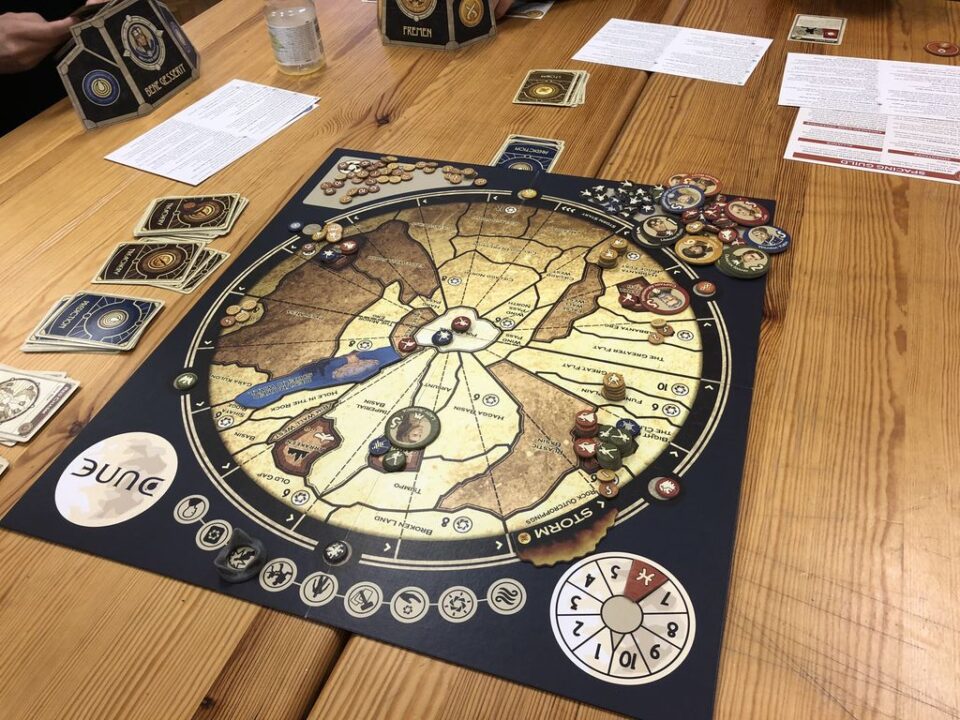
Alliance and Negotiation: Making Frenemies on Arrakis
Let’s get this out of the way: Dune is not a game for shy folks. If you hate talking, plotting, or making shaky deals, you’ll be more confused than a sandworm at a swimming pool. But if you love the idea of outwitting your friends, alliances and negotiation are where Dune shines like the golden sun above Arrakis.
The alliance mechanic in Dune is wild—in a good way. At certain points, players can form alliances, sharing victory conditions and special powers. Trust me, when you’re about to get stomped and you suddenly form the most unlikely team with your old enemy, it’s as dramatic as a soap opera only with cooler hats. The kicker? These alliances can and WILL break. Sometimes right in your face. Once, my own friend flipped on me mid-victory march. I still buy him coffee, but I make him taste it first.
Negotiation in Dune is less “please” and more “pleas,” as people beg, bribe, and—let’s be honest—straight-up lie. Secret deals, backroom promises, and wild betrayals are not just allowed, they’re encouraged. There are few things funnier than watching your buddy trade away all his spice, only to realize he actually needed it for his next move. Dune transforms your table into a theater of mistrust, and it’s almost impossible to avoid a dramatic betrayal at some point.
So, if you don’t like games where everyone at the table is suddenly a used sandworm salesman, maybe Dune’s not for you. But if you’re ready to lie, betray, and make deals you’ll regret, you’re in for a ride. Next up, let’s see if the game length leaves you thirsty in the desert or just thirsty for more…
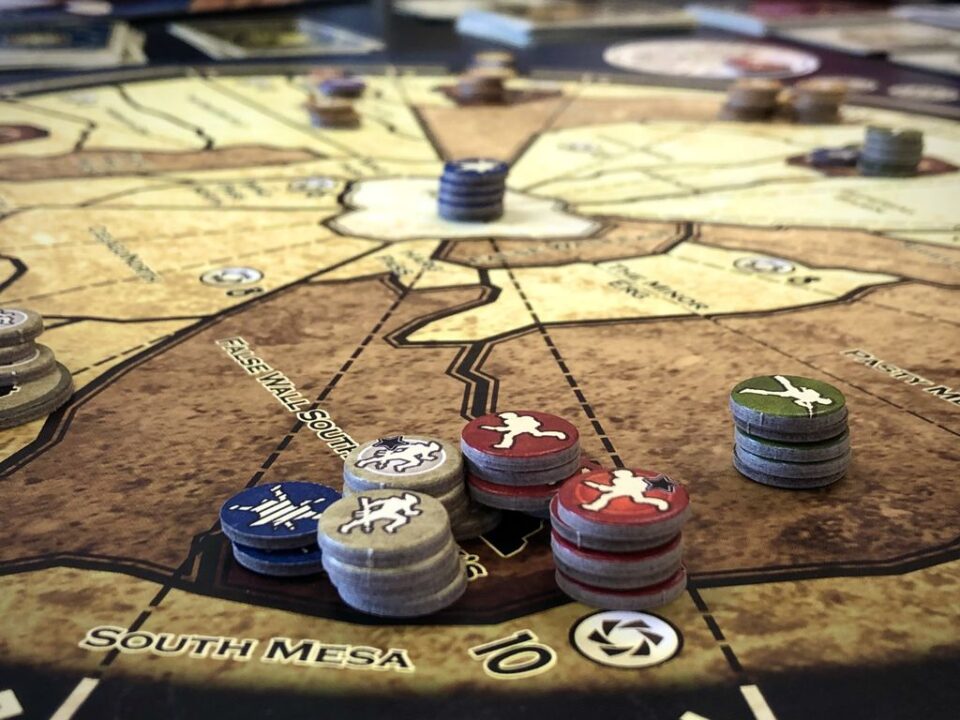
How Long Does Dune Take? Game Length and Pacing Explained
When it comes to game night, Dune doesn’t mess around. The box pretends you can finish in a couple of hours if everyone moves fast. Let me tell you: that’s wishful thinking, unless you play with people who negotiate faster than a used car salesman during a Black Friday sale. In my group, Dune often drags well past three hours, sometimes four, and that’s if we don’t get distracted by snacks or heated debates about whether sandworms make good pets.
The pacing of Dune is sort of like riding a sandworm—sometimes you’re flying, sometimes you’re stuck in the sand while someone spends twenty minutes plotting revenge. The early rounds start slow while everyone tries to figure out who’s playing who. But once the alliances start forming (and inevitably breaking), things speed up, and the board transforms faster than my resolve at a dessert buffet.
Don’t go in expecting a quick skirmish. Dune is epic with a capital E. You’ll want players who enjoy plotting and scheming for a long haul, not folks who get antsy if a game takes more than an episode of Friends. But let me say, the tension builds up nicely—by the last rounds, everyone’s on edge, trying to figure out if this turn will be the one to end it all or just the start of another backstab.
But was it all skill, careful planning, or did Lady Luck sneak her hand in? Next, I’ll spill the spice on luck versus strategy in Dune!
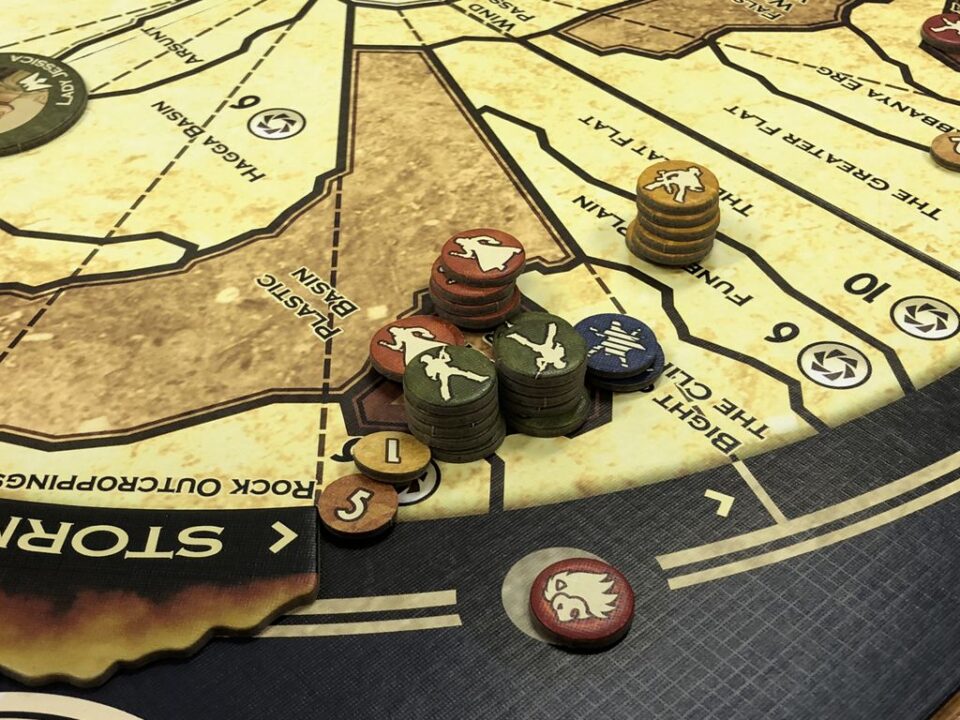
Luck vs. Strategy in Dune: Who Really Calls the Shots?
If you’ve ever played Dune, you know this game has more mind-bending twists than a sandworm does segments. But with all the cunning and scheming, how much does luck mess with your carefully crafted master plan? I’ve played Dune more times than I’ve eaten questionable snacks at game night, so this is a subject close to my heart (and stomach).
First off: Dune is a strategy-heavy game. You spend ages plotting the perfect betrayal or waiting for the best moment to stab someone in the back (metaphorically, don’t call the police). You have to think ahead, read your opponents, and manage resources like you’re the only one at the water cooler during summer in Arrakis.
BUT—and yes, it’s a big but—luck sneaks in like a sneaky Harkonnen. You never know which treachery cards you’ll draw, or what nasty surprises lurk in that next storm card. Sometimes you lose your best troops to a spice blow that decides to show up in the exact wrong place. It’s enough to make even Paul Atreides sweat. A lucky card at the right time can turn the tide, so even skilled players sometimes get sand in their shoes for no reason.
The balance leans toward strategy, but lucky moments still pop up. For me, that’s okay—as long as luck isn’t running the game. In Dune, smarts usually win… unless your plans go up in a puff of spice. If you love a game where brains and a bit of wild destiny mix together, Dune is a solid choice. I gladly recommend it—just don’t blame me when fate throws you to the worms!
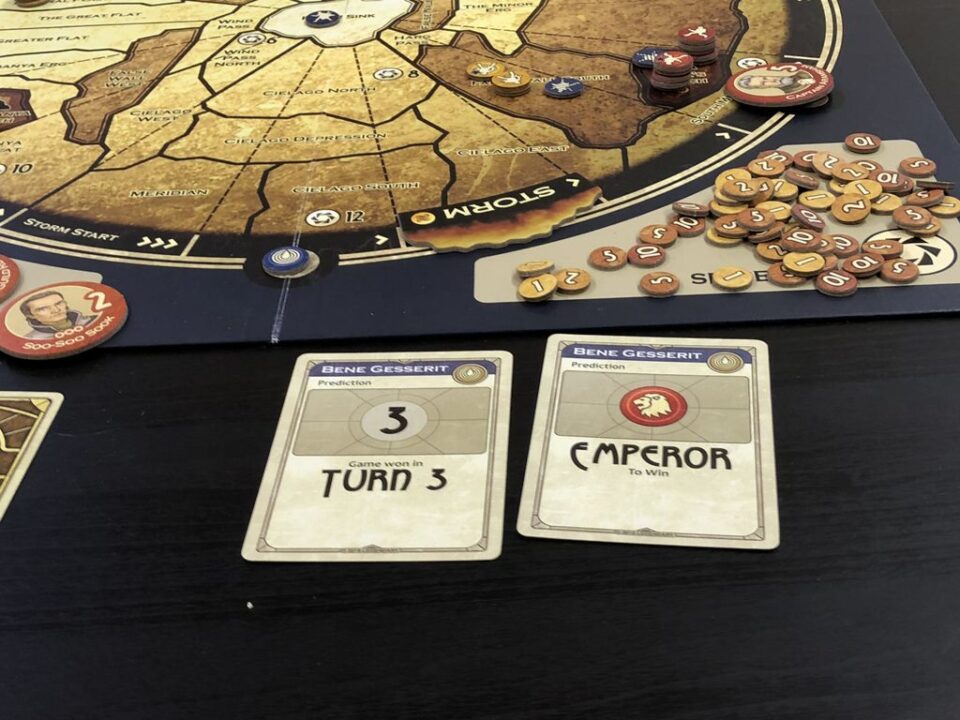
Conclusion
So that’s my take on the Dune board game. Dune is wild, twisty, and full of drama. Every game feels like its own wild movie. If you love cutthroat alliances and using your brain, this one is for you. But if you hate a bit of luck or games that last longer than most weddings, you might want to think twice. My group had a blast, even if I still can’t trust Steve after that last-minute alliance betrayal. All in all, Dune brings epic moments you won’t forget. Thanks for sticking with my review! Now, go grab some spice—but don’t blame me if you lose your friends along the way.

